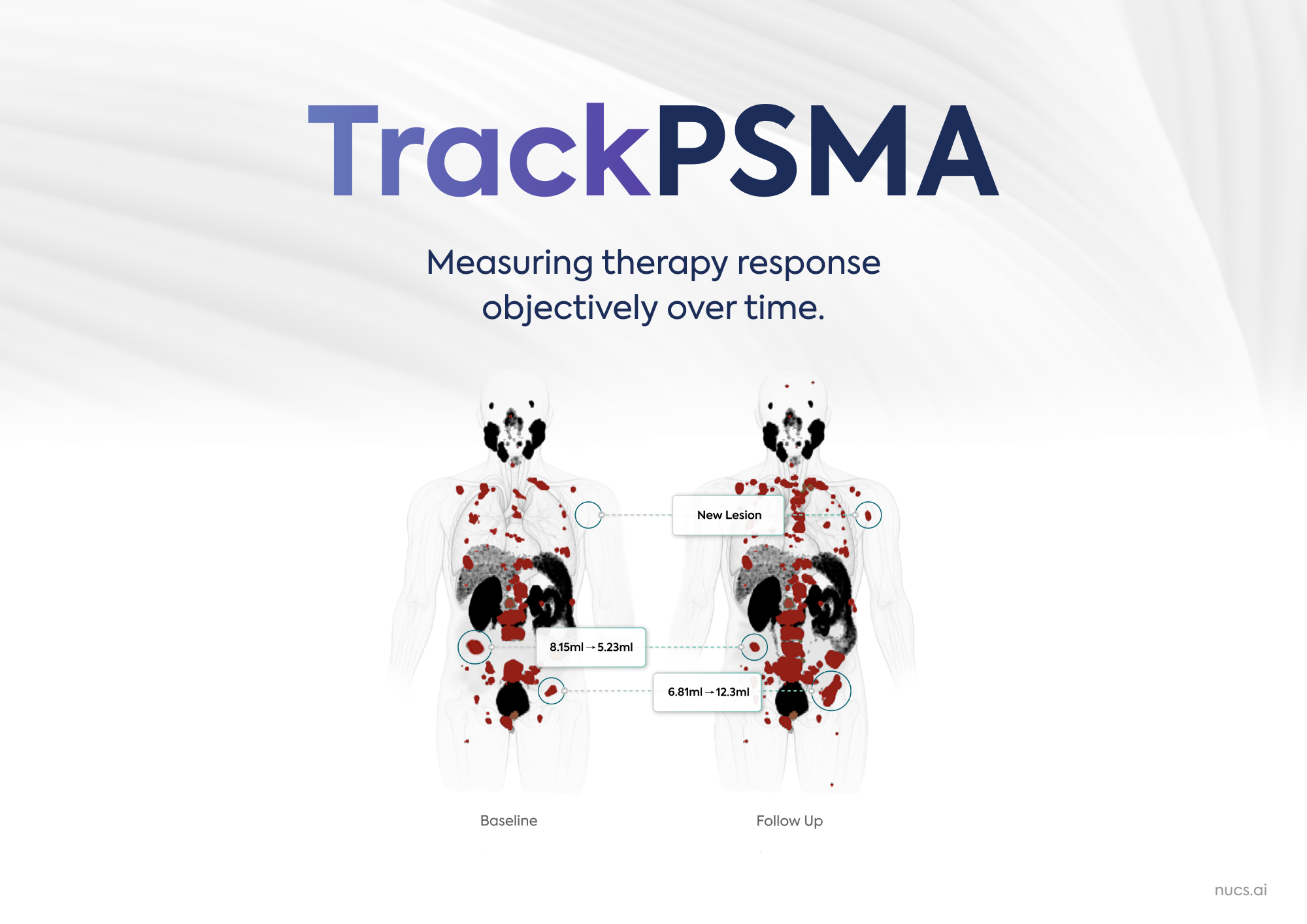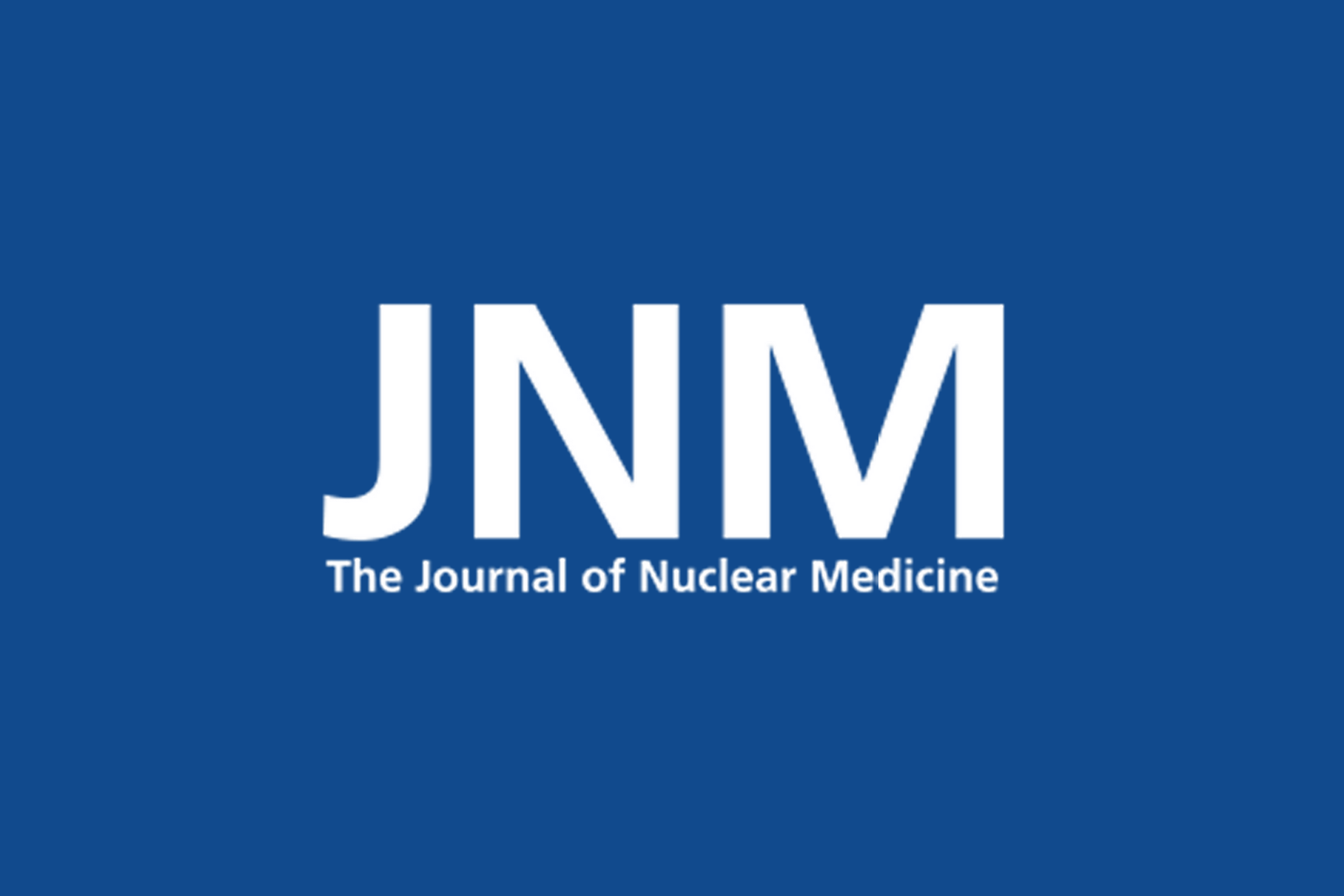Artificial intelligence to predict outcome after [177Lu]Lu-PSMA for metastatic castration-resistant prostate cancer: Preliminary results from a multicentric prospective study
Preliminary multicenter results show SelectPSMApredicts which mCRPC patients will respond to 177-Lu-PSMA therapy.

Abstract
Preliminary results from the 2025 American Society of Clinical Oncology (ASCO) Annual Meeting, published in the Journal of Clinical Oncology, highlight the role of SelectPSMA, Nucs AI’s AI-powered PSMA-PET/CT analysis tool, in predicting outcomes for metastatic castration-resistant prostate cancer (mCRPC) patients treated with [177Lu]Lu-PSMA radiopharmaceuticals. This prospective, multicenter study addresses the unmet need for better patient selection, as only 46% of patients achieved a PSA response in the phase 3 VISION trial.
Methods
VISION-eligible patients with mCRPC who had progressed on taxane-based chemotherapy and ARSIs underwent baseline [68Ga]Ga-PSMA-11 PET/CT before treatment with [177Lu]Lu-PSMA-617 or [177Lu]Lu-PSMA-I&T. SelectPSMA was used to classify patients as responders (PSMA-R) or non-responders (PSMA-NR). This interim analysis reports exclusively on the University of Grenoble-Alpes cohort (IRB: CEMEN 202406). Primary outcomes included PSA50 response (≥50% PSA decline), PSA progression-free survival (PSA-PFS), and overall survival (OS). Associations were evaluated using Fisher’s exact test and Kaplan-Meier analysis.
Results
Of 72 patients screened, 60 (83%) were enrolled between August 2023 and September 2024. Most (95%) had prior taxane therapy, and all received ARSIs. Median follow-up was 9.5 months. At last follow-up, 63% of patients achieved PSA50, and the median PSA-PFS was 5.1 months (95% CI: 3.3–7.1). SelectPSMA classified 9/60 (15%) as non-responders, who had significantly lower PSA50 rates (22% vs. 71%; p=0.009) and shorter PSA-PFS (1.2 vs. 6.6 months; p<0.001) compared to responders. OS data were immature at this stage.
Conclusion
Early findings demonstrate that SelectPSMA can identify patients with lower likelihood of PSA response and shorter progression-free survival following [177Lu]Lu-PSMA therapy. These results provide preliminary evidence for the value of AI-based imaging biomarkers in optimizing patient selection for PSMA-targeted therapies. Full multicenter analysis with mature OS data is ongoing.
Reference: Djaileb L, Mercier A, Rovera G, et al. Artificial intelligence to predict outcome after [177Lu]Lu-PSMA for metastatic castration-resistant prostate cancer: Preliminary results from a multicentric prospective study. J Clin Oncol. 2025;43(16_suppl):17077. doi:10.1200/JCO.2025.43.16_suppl.e17077
Source (click to view link): ASCO GU Annual Meeting 2025 | DOI: 10.1200/JCO.2025.43.16_suppl.e17077




